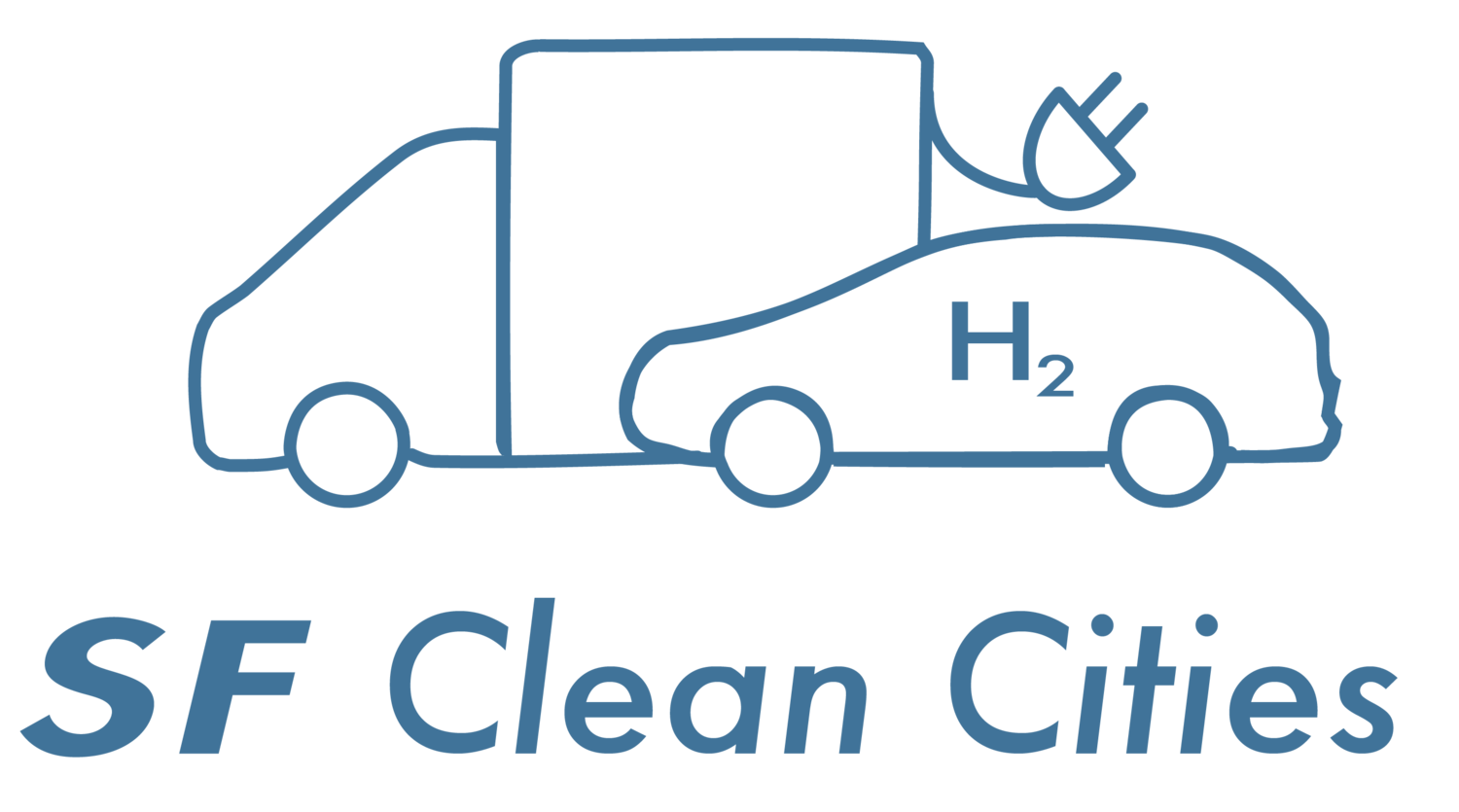Explore our historical projects below
In 2015, the California Energy Commission (CEC) awarded the San Francisco Environment Department, in partnership with the San Francisco Clean Cities and Communities Coalition, a grant to create the Alternative Fuel Vehicle Readiness Plan. The Plan is intended to advance the City’s adoption of alternative fuels, including electricity, hydrogen, biofuels, natural gas, and propane.
Alternative Fuel Vehicle Readiness Plan
Project overview
Brought together public and private-sector stakeholders to participate in a Technical Advisory Committee
Reviewed data and best practices about each fuel type and made recommendations on policies and programs for alternative fuel vehicle deployment
Additional resources
In 2016, the Department of Energy (DOE) awarded the San Francisco Environment Department, in partnership with the San Francisco Clean Cities and Communities Coalition, a grant to accelerate the adoption of Fuel Cell Electric Vehicles (FCEVs) in the Bay Area from 2016-2019.
Fuel cell electric vehicles and hydrogen fueling
Project overview
Increased community awareness of the availability and value of hydrogen and FCEVs
Drove market demand for FCEVs through SunShares, an established and public-facing group procurement program
Updated best practices in the permitting and inspection of hydrogen fueling stations
Delivered hydrogen safety and best practice education to elected officials and planning, building inspection, and public safety professionals across the Bay Area
Additional resources
California is investing in a retail network of 200 hydrogen fueling stations by 2025 to support the growing number of FCEVs that are crucial to the state’s goal of 5 million electric cars by 2030. Below are links to tools and best practice guidance to assist communities in evaluating and permitting hydrogen fueling stations.
In 2018, San Francisco International Airport (SFO) announced a landmark agreement for the use of Sustainable Aviation Fuel (SAF), a low-carbon and sustainably produced alternative to jet fuel. Made from renewable materials like biomass and food scraps, SAF produces 80 percent less emissions than conventional aviation fuel. The agreement was the first of its kind to include fuel suppliers, airlines, and airport agencies in a collaborative effort to accelerate the global transition to SAF.
Sustainable aviation fuel
Project overview
SFO brought together partners including United Airlines, Alaska Airlines, American Airlines, Cathay Pacific, Chevron, Shell, Neste, and LanzaTech, to sign a Memorandum of Understanding (MOU) to increase SAF volumes at SFO
MOU signatories represent over 66 percent of all flights at SFO
MOU signatories participate in the SAF Stakeholder Working Group to:
Share knowledge and best practices regarding SAF and advances in the industry and global market
Advocate for SAF inclusion in the Low Carbon Fuel Standard
Additional resources







